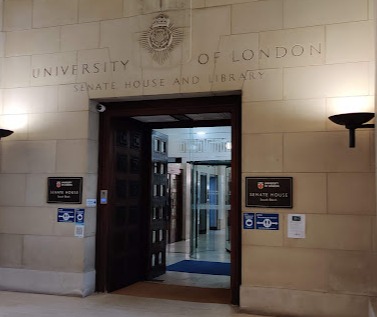Theme: Cyber Science in the era of Artificial Intelligence
Royal Holloway University of London
Central London Campus
Stewart House via Senate House
Malet St, London WC1E 7HU
London, United Kingdom
3-5 June 2026
3-4 June (in-person)
5 June (virtual)
About Cyber Science 2026
Cyber Science 2026 will be a hybrid event, however, we encourage participant to endeaviour to attend in-person.
The International Conference on Cybersecurity, Situational Awareness and Social Media (Cyber Science 2026) is a multidisciplinary conference. It brings academics, researchers, practitioners and participants together to share and discuss new and emerging ideas, concepts and research outcomes. The conference focuses in advancing the principles, methods and applications of cybersecurity, situational awareness and social media.
Cyber Science 2026 invites participants to submit original papers that encompass principles, concepts, analysis, design, methods and applications of cybersecurity, situational awareness and social media.
All submitted papers will be independently peer-reviewed, and accepted papers must be registered and presented at the conference in order to be included in the conference proceedings.
About The Conference Venue
Stewart House, Royal Holloway University of London
Get ready for an exciting day at Royal Holloway University, London, UK on June 3, 2026 at 8:30 AM (BST). Join fellow tech enthusiasts and dive into the latest in cyber science with talks, workshops, and networking. Whether you're a pro or just curious, this event is the perfect place to explore and have fun. Don’t miss out on this awesome opportunity to connect and learn in person!
📍 Senate House, Royal Holloway University - steps away from the British Museum, the British Library, Russell Square, and Oxford Street. Seats are limited. Reserve yours today.





Conference Publication
Cyber Science 2026 will be published by Springer.
The Cyber Science 2026 proceedings will be published in the Springer Proceedings in Complexity book series.


Keynote & Panel Speakers 2026
The speakers at cyber science 2026 are industry leaders and top academics in the field
Dr Carolyn Swinney
Royal Air Force Communications & Electronics Engineering Officer and Executive Fellow at the University of EssexDr Cyril Onwubiko
Business Information Security Officer, BarclaysDr Deepthi Ratnayake
Principal Lecturer in Cyber Security, Cybersecurity & Computing Systems Research Group; University of Hertfordshire (UH)Dr Konstantinos Mersinas, PhD, CISSP
Associate Professor at the Information Security Group, Royal Holloway, University of LondonCall For Papers (CFP)
The deadline for all submissions is 28th February 2026 extended to 30th March 2026.

Cyber Science invites original submissions contributing to research and innovation in Cybersecurity, Situational Awareness, Social Media, and Cyber Incident Response. All papers will undergo independent peer review, and accepted papers must be registered and presented at the conference to be included in the proceedings. Submissions must follow Springer author guidelines, be prepared in PDF or Word, and be submitted via the Microsoft CMT service.
ACKNOWLEDGMENT
The Microsoft CMT service was used for managing the peer-reviewing process for this conference. This service was provided for free by Microsoft and they bore all expenses, including costs for Azure cloud services as well as for software development and support.
About C-MRIC
Pioneering research and innovation in Cyber Situational Awareness, Social Media, Cyber Security and Cyber Incident Response

Cyber Science is the flagship conference of the Centre for Multidisciplinary Research, Innovation and Collaboration (C-MRiC) focusing on pioneering research and innovation in Cyber Situational Awareness, Social Media, Cyber Security and Cyber Incident Response.
Cyber Science aims to encourage participation and promotion of collaborative scientific, industrial and academic inter-workings among individual researchers, practitioners, members of existing associations, academia, standardization bodies, and including government departments and agencies. The purpose is to build bridges between academia and industry, and to encourage interplay of different culture.
Royal Holloway University of London, London, UK
7+ Speakers
3 Main Sponsors
Event Schedule & Agenda
Wednesday June 3, 2026 | UK Time zone: GMT+0
09:00 Conference day 1
To be decided.
Thursday June 4, 2026 | UK Time zone: GMT+0
09:00 Conference day 2
To be decided.











